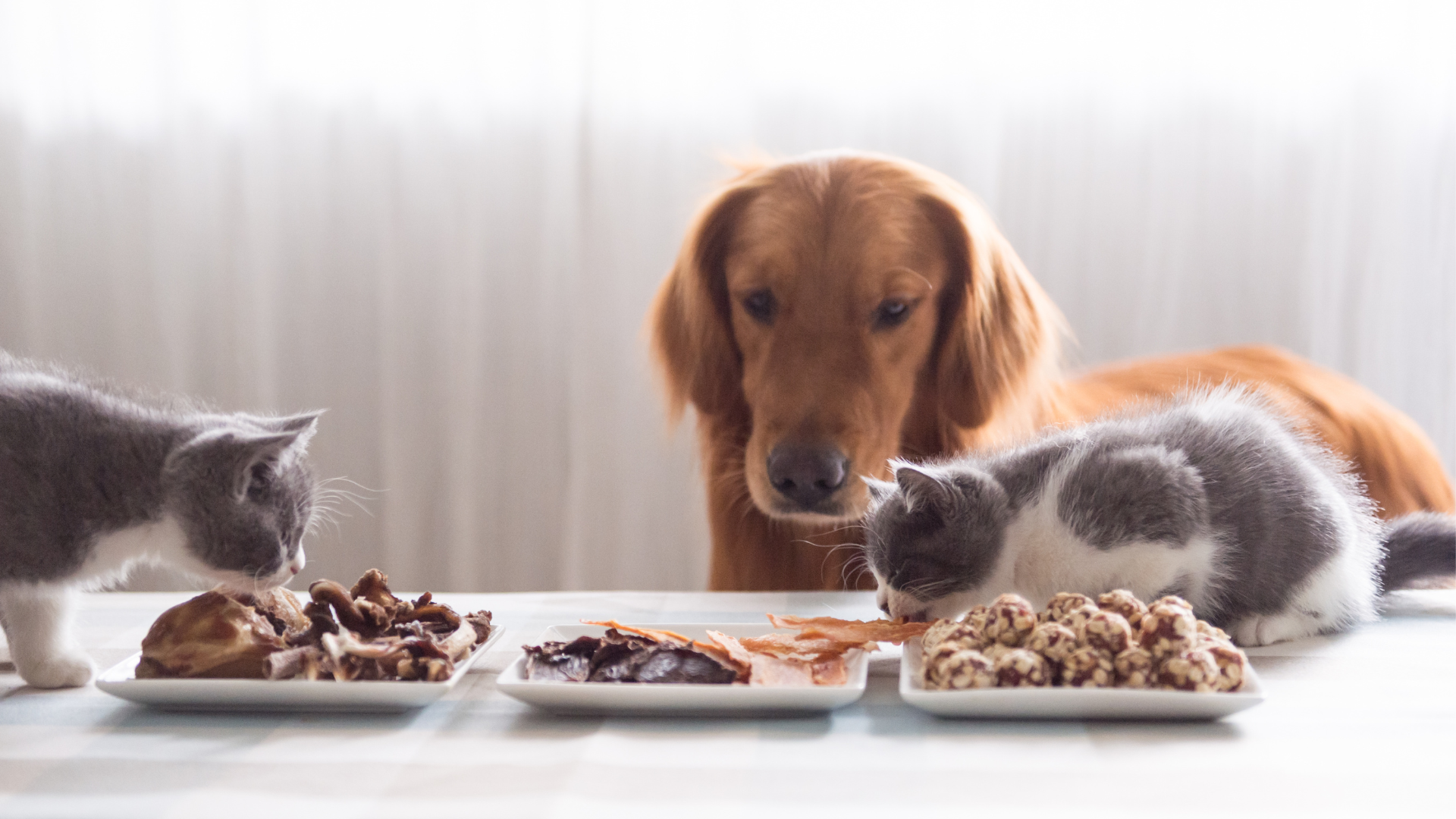
Can Cats Eat Dog Food? - Risks, Side Effects & Safe Alternatives
Can cats eat dog food?
Occasionally, but not as a substitute for cat food.
Dog food is designed to meet a dog’s nutritional requirements, which differ significantly from a cat’s needs. Cats are obligate carnivores, meaning they require animal-based nutrients like taurine, arachidonic acid, and vitamin A—nutrients that dog food often lacks.
How Much Dog Food Can Cats Eat?
If your cat sneaks a bite of dog food, there’s no need to panic—it’s unlikely to harm them immediately. However, it should only be a rare occurrence, and not a regular part of their diet. Here’s why:
-
Lack of essential nutrients – Cats require taurine, which is often missing in dog food. A deficiency can lead to serious health problems, including heart issues.
-
Inappropriate protein and fat levels – Cat food has higher protein and fat contents tailored to feline metabolism.
-
Digestibility issues – Dog food is formulated for omnivorous dogs, making some ingredients harder for cats to digest.
If your cat eats a small amount as a one-time snack, they’ll likely be fine. But relying on dog food long-term could lead to deficiencies and health complications.
Is Dog Food Toxic to Cats?
Dog food isn’t toxic to cats, but that doesn’t mean it’s safe. While it won’t poison them outright, it fails to provide the necessary nutrients they need to thrive. Additionally, some ingredients in dog food—such as excessive carbohydrates or certain preservatives—may cause stomach upset in cats.
What Are the Side Effects of Eating Dog Food?
Feeding your cat dog food regularly can lead to nutritional deficiencies and health problems such as:
-
Taurine deficiency – Can result in vision issues, heart disease (dilated cardiomyopathy), and poor immune function.
-
Vitamin deficiencies – Lack of vitamin A can cause vision problems, and missing arachidonic acid may lead to dry skin.
-
Weight loss or muscle deterioration – If they don’t get enough protein, cats may lose muscle mass and energy.
-
Digestive upset – Some cats experience diarrhoea or vomiting due to inappropriate ingredients for feline digestion.
Our Final Thoughts: Stick to Cat Food
While cats can eat small amounts of dog food without immediate harm, it should never replace their proper diet. A cat’s nutritional needs are specific, and feeding them dog food for an extended period could lead to serious health issues. To ensure your furry friend stays happy and healthy, always provide high-quality cat food designed for their needs.
Cat Food We Would Recommend:
This "Return to the Wild" Salmon Cat Dry Food is great for cats because it provides high-quality nutrition tailored to their needs. Here’s why it stands out:

|
|
This WOOLF WildCat Ultimate Turkey Wet Cat Food is a solid choice for adult cats, and here’s why:

|
|
Overall, it’s a high-quality, natural option for cats that need a balanced, nutritious diet. If you’re looking for a nutritious option, these could be a great choice!








